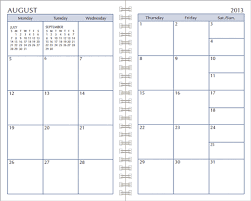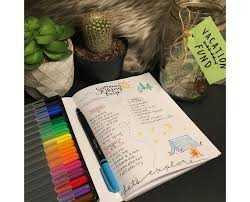Ways to Stop Thinking About Journaling and Actually Start Journaling
Curated from: themuse.com
Ideas, facts & insights covering these topics:
6 ideas
·5.64K reads
32
Explore the World's Best Ideas
Join today and uncover 100+ curated journeys from 50+ topics. Unlock access to our mobile app with extensive features.
Journaling Before You Get Out of Bed
Try grabbing your notebook as soon as your alarm goes off and writing for a few minutes before your feet even hit the ground.
This way you know it will get done, and the activity first thing in the morning may help wake your brain up.
362
1.25K reads
Use a Journaling App
While many people recommend journaling in a physical notebook to give your brain a break from screens, if you’re having a hard time keeping up that practice, you can try using an app that you can whip out when you have an extra moment in the day.
239
935 reads
Don’t Use Full Sentences
Feel free to have your journal as disjointed as you want.
Leo Babatua of ZenHabits says he only writes his journal in bullet points; just three to six per day. By making it this easy, he says it’s much more attainable for him to keep it up.
321
960 reads
Journaling on a Calendar
Instead of getting a notebook to journal in, get a (large) desk calendar or date book, and then just challenge yourself to write a sentence or two every day, on that day.
This small amount of writing a day feels attainable. By writing it on a calendar, it’s very obvious when you’ve missed a day.
254
776 reads
Make a Template for Your Journal
Sometimes the hardest part of journaling is staring at a blank page and not knowing what to write about.
Create a template that you follow every day. Maybe that’s writing three things you’re grateful for every day, or asking yourself a question each day, like “What can I do to make tomorrow better than today?” If it’s helpful, you can create printable journaling “worksheets” that lay out the activities you’ve promised yourself to do.
319
734 reads
Find Fun Prompts for Your Journal
Find a bunch of interesting prompts that you’re excited to write about, and then spend each day journaling on a different one.
Search for “journaling prompts” and start collecting your favorites. Compile them all in a Word document or on the first page of your journal and work your way down the list.
299
990 reads
IDEAS CURATED BY
Michael Frost's ideas are part of this journey:
Learn more about personaldevelopment with this collection
How to create a positive work environment
Conflict resolution strategies
Effective communication in the workplace
Related collections
Similar ideas
6 ideas
5 ideas
How To Start A Journaling Habit Today
medium.com
Read & Learn
20x Faster
without
deepstash
with
deepstash
with
deepstash
Personalized microlearning
—
100+ Learning Journeys
—
Access to 200,000+ ideas
—
Access to the mobile app
—
Unlimited idea saving
—
—
Unlimited history
—
—
Unlimited listening to ideas
—
—
Downloading & offline access
—
—
Supercharge your mind with one idea per day
Enter your email and spend 1 minute every day to learn something new.
I agree to receive email updates




